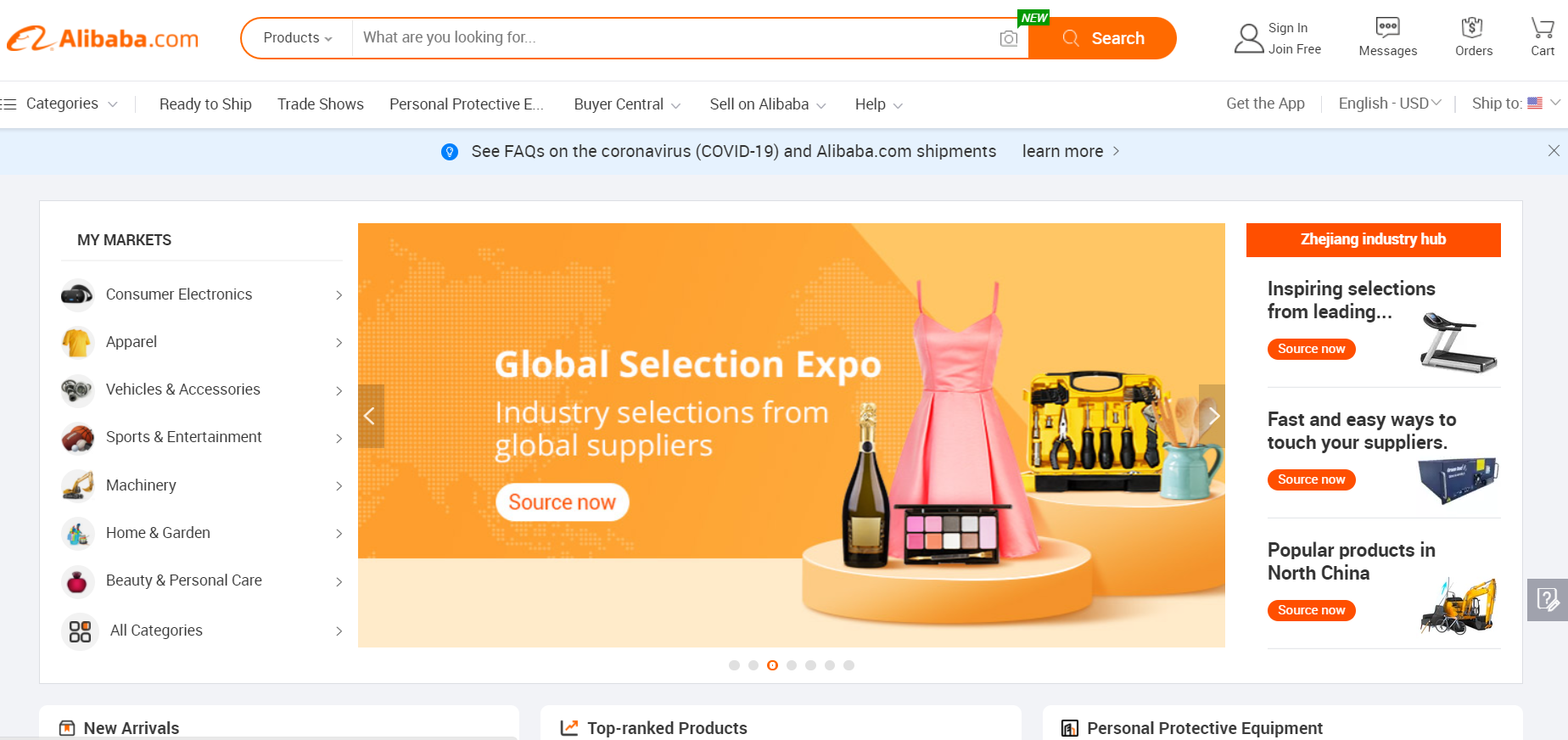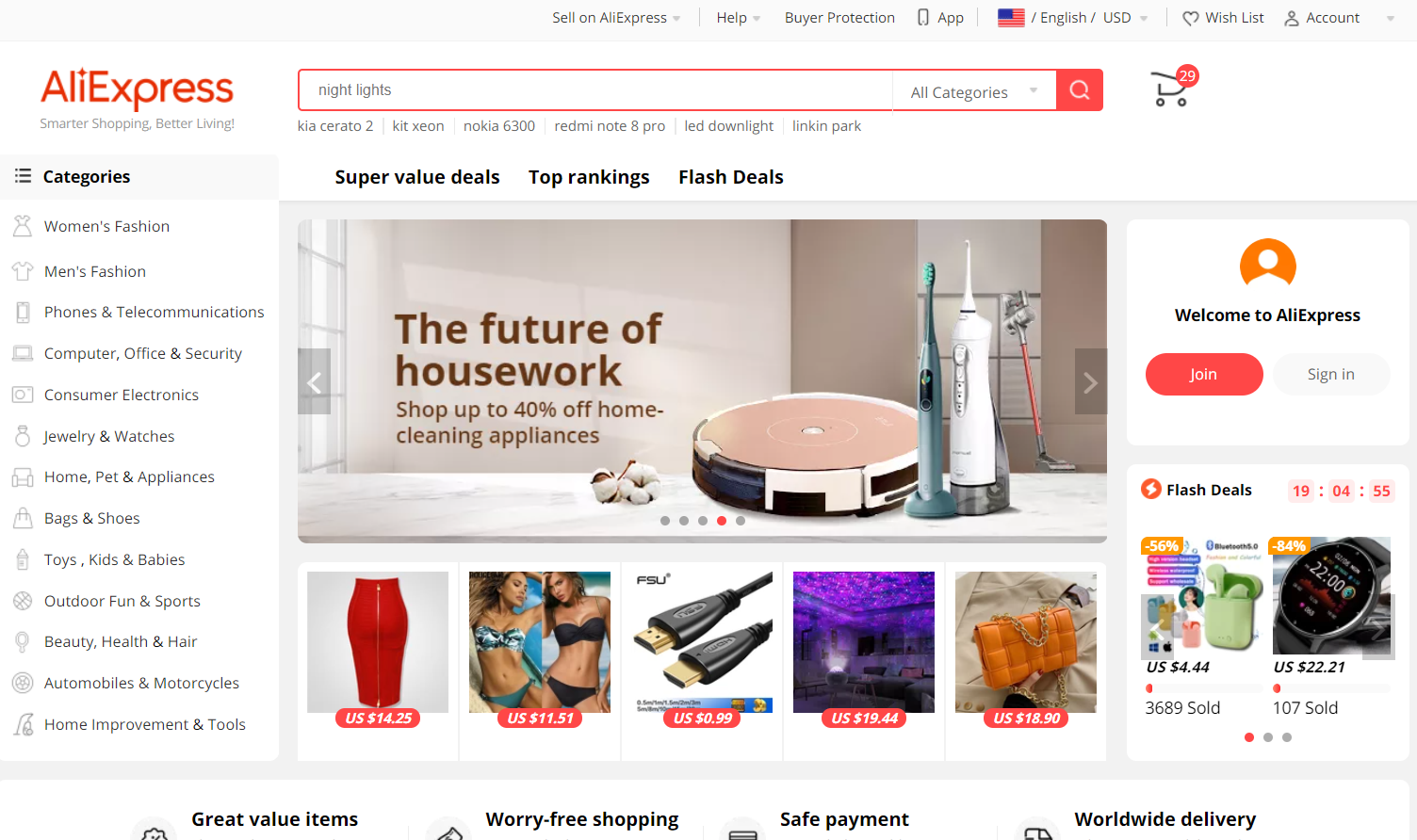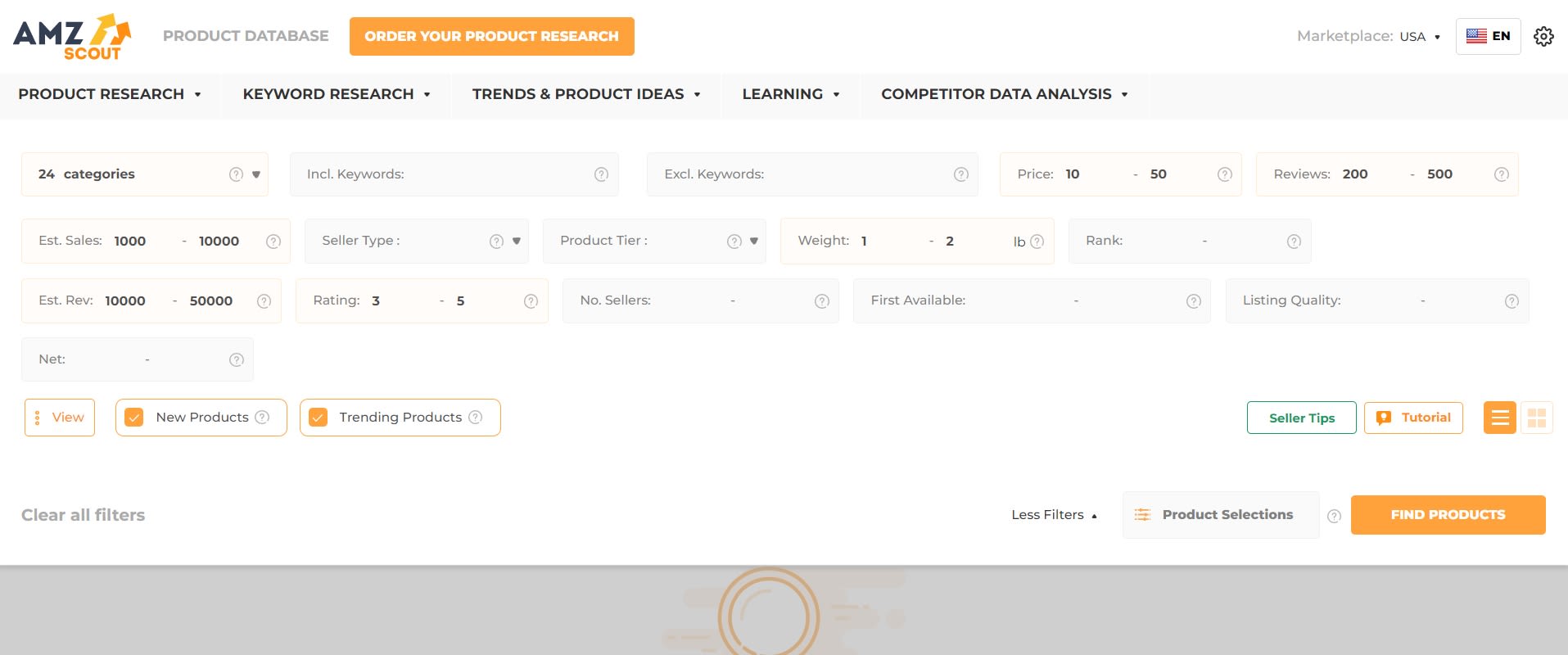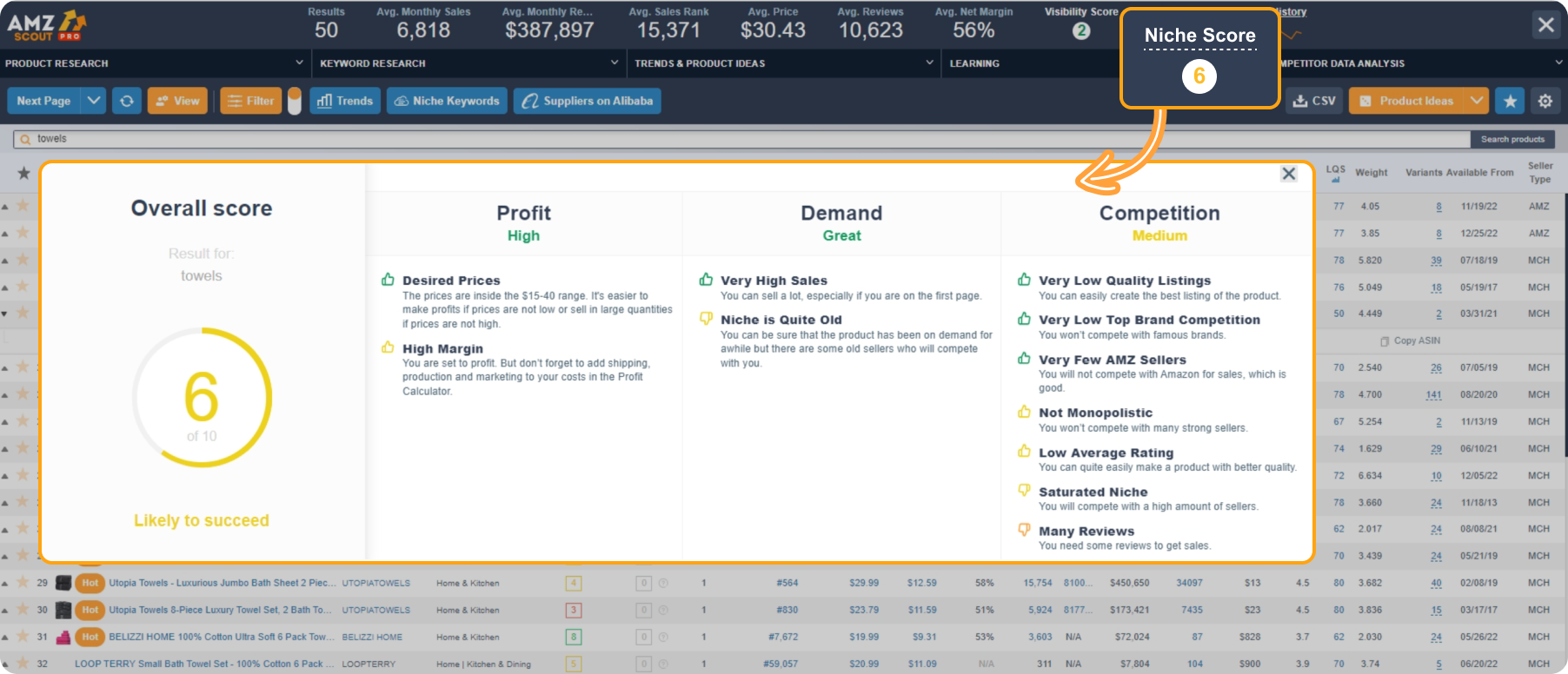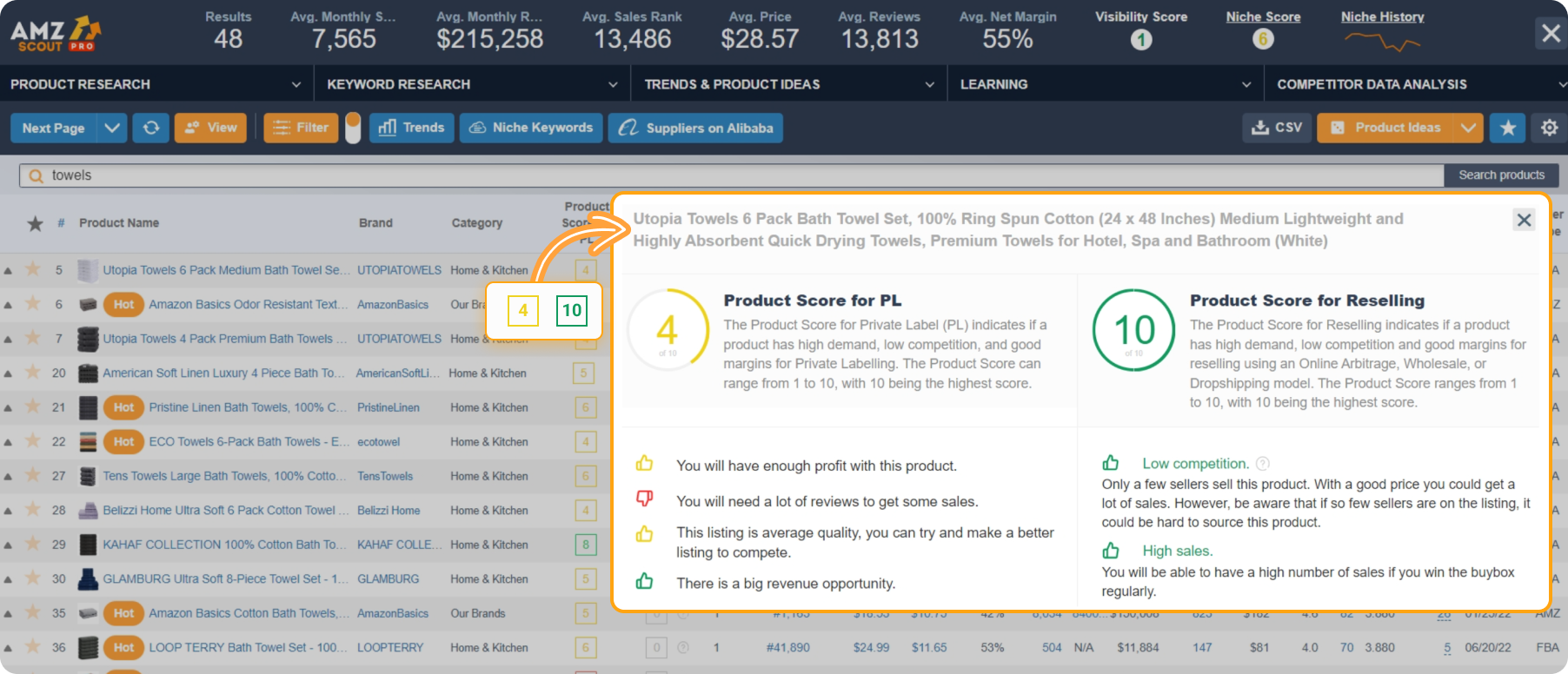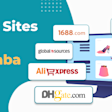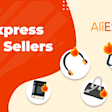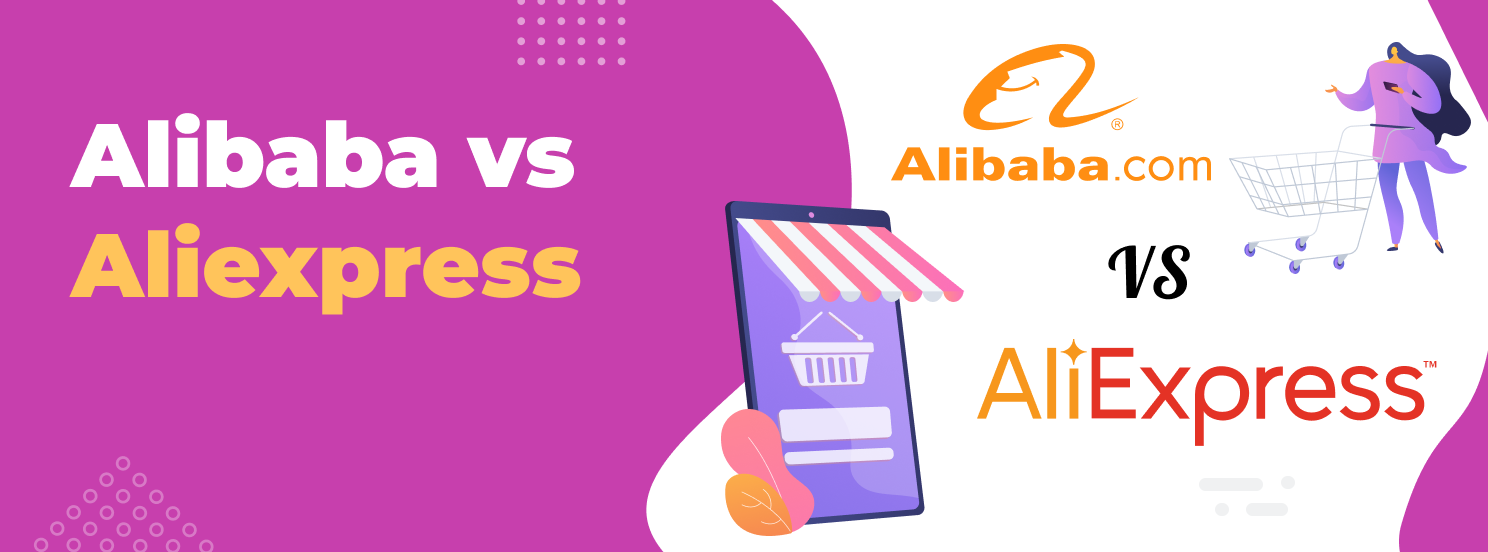
Alibaba vs AliExpress: Key Differences for Business in 2025
When sourcing products, sellers often turn to Chinese marketplaces for better prices and a broader selection of goods and suppliers. Alibaba and AliExpress often come to mind as popular options, and many people think these two platforms are the same thing. However, each site has its own specifics.
In this article, we'll provide a brief overview of each of these platforms so you can determine which one is best suited for your business needs.
Table of contents
Overviews of Alibaba and AliExpress
Both Alibaba and AliExpress are part of the Alibaba Group, and serve as online platforms for purchasing goods. Here's a brief description of each:
Alibaba is a B2B (business-to-business) marketplace which is renowned for connecting manufacturers, wholesalers, and suppliers globally. Here, you can buy ready-made products, source raw materials, or arrange for custom-manufactured orders. This platform focuses on selling goods in large quantities, which is great for business owners who are interested in placing large wholesale orders for a lower price.
AliExpress is an online retail platform where individual customers can buy products directly from manufacturers or suppliers. By cutting out the middlemen, prices here are significantly lower compared to typical online stores. AliExpress operates in over 200 countries, supports multiple languages and currencies, and contributed to robust revenue growth of 44% for its parent company in 2024.
Both Alibaba and AliExpress cater to distinct business models and requirements, so there's no competition between them. Let's explore their differences in more detail below.
Key Differences: AliExpress vs. Alibaba
The key difference between these two platforms lies in their target audiences: Alibaba caters to wholesalers, whereas AliExpress serves individual sellers. There are several other distinct factors that set them apart, including:
Business model: Alibaba specializes in wholesale, which enables sellers to place customizable or on-demand production of bulk orders. In contrast, AliExpress focuses on retail sales, offering smaller quantities of ready-made products only.
Pricing: Alibaba generally offers lower per-item prices due to larger order quantities, but the total purchase amount can be higher than on AliExpress, where single-item purchases are common. Negotiating prices is common on Alibaba, whereas prices on AliExpress are typically fixed.
Ordering: On Alibaba, buyers can negotiate their payment methods and return policies directly with suppliers. Shipping logistics are typically organized by the buyer. On AliExpress, payment methods and return policies are set by the platform, and delivery is usually handled by postal services.
It's important to consider these differences as well as your particular business model and operational goals when deciding which platform to use for purchasing goods.
Deciding Which Is Better for Your Business: Alibaba vs. AliExpress
To determine which platform best fits your business needs, you need to compare their strengths and weaknesses thoroughly. Let's start with Alibaba.
Buying on Alibaba
Buying on Alibaba is ideal for those looking to order in large quantities of low-priced products to sell. This is achieved through:
Sourcing strategy: Alibaba is good for resellers who wish to place wholesale orders, and since the orders are large, manufacturers can also produce products under your own brand. This allows you to differentiate yourself from the competition by offering unique designs or improved product features.
Amazon FBA integration: Sourcing items from Alibaba in bulk is particularly advantageous for Amazon FBA integration because it helps mitigate the impact of Amazon's high fulfillment fees. FBA streamlines inventory management and shipping with Prime benefits in order to boost business efficiency.
Quality control: You can communicate directly with the supplier to address any concerns or dissatisfaction with a product, ensuring that issues can be resolved promptly and to your satisfaction. This is especially important for those launching their own brand.
However, it's important to keep in mind that this sourcing method comes with inherent risks:
Risk and Investments: Ordering products in bulk entails higher investments and carries risks, such as products not meeting expectations or market suitability. It's essential to vet suppliers thoroughly to avoid potential scams and ensure consistent product quality.
Due to its wide array of suppliers and affordable products, Alibaba is a top choice for Amazon sellers, especially those looking to produce goods under their own brand. Finding a reliable supplier with favorable terms, high quality, and secure delivery is crucial. However, identifying a promising product to sell on Amazon is equally important.
Tip: How to Choose Products on Alibaba to Sell on Amazon Under Your Own Brand
Fortunately, there are numerous tools to assist you with market and product research. One highly-recommended option is the AMZScout toolkit, which offers precise data and ease of use. To help you identify a hot product suitable for private labeling, simply follow these steps:
1. Go to the Product Database. Enter your email address to start a free trial.
2. Apply filters to narrow down your search for private label products. For example, to find profitable home product ideas that are suitable for customization, consider specifying in terms of:
Category: “Home: Kitchen & Dining”. You can be even more specific by including related keywords, like “lunch box”.
Monthly Revenue or Estimated Sales: Enter your desired numbers here, for example, a minimum of "$5,000/month" or a minimum of “200 sales/month”.
Weight: Maximum of 3 lbs to save on shipping costs.
Price: Minimum of $40 to ensure sufficient profit margins.
Reviews: Maximum of 300 to avoid competition with well-established brands.
Rating: Maximum of 4 stars to identify products with potential areas for improvement.
3. Get your results. Click Find Products to generate a list of items that match your criteria. Select products you’re interested in to evaluate them individually in the AMZScout PRO Extension.
4. Search for a product on Amazon. Type a product name from the Product Database into Amazon's search bar (for example, "freezable lunch pack"). Next, click the icon in the top-right corner of the page to access the PRO Extension.
5. Evaluate the niche’s potential. Click on the Niche Score, located in the upper right-hand corner of the page. A score higher than 7 suggests strong demand, low competition, and attractive profit margins.
6. Check the product’s performance. If the niche seems promising, examine potentially profitable items. To do this, click on the Product Score for PL column title to display items with the highest potential for customization. Using the Product History feature (found below any product), review the changes in sales and prices over time to ensure that the demand is stable or growing.
7. Calculate profit. Enter all product-related costs (including production and shipping prices), and the tool will automatically calculate your FBA fees. It will then show your profit margin after deducting all expenses. If the margin exceeds 20%, this indicates the product will likely yield high returns.
This method helps you identify profitable items that fit your business model. By clicking “Find on Alibaba,” you can quickly locate a supplier offering the product you’re looking for, saving time and ensuring you invest in the right things.
Buying on AliExpress
AliExpress caters to sellers seeking flexibility, and is supported by these key factors:
Risk and investments: Ordering small quantities on AliExpress significantly reduces financial investments for sellers. This approach minimizes the potential loss if a product fails to sell well or meet expectations.
Sourcing strategy: This is a smart strategy for launching new products or entering unfamiliar markets. Sellers can order single units of various products to gauge consumer interest and market demand before ordering larger quantities.
Dropshipping integration: AliExpress supports one of the most cost-effective business models - dropshipping. There are numerous integrations that can import products directly into your online store, with payment only required when a customer places an order.
Note: Learn how to dropship with AliExpress in this guide.
However, sellers also need to take into account two significant drawbacks of AliExpress:
Quality control: As you purchase ready-made goods, there is no control over the manufacturing process. This can significantly impact product quality and, consequently, customer satisfaction.
Customization: AliExpress often limits or eliminates customization options, as manufacturers may not accommodate low-volume orders. This is not suitable when you’re starting your own brand.
Thus, AliExpress offers a cost-effective and convenient entry into markets for individual resellers. With the platform managing all aspects of payment systems, delivery, and customer support, it saves time for sellers to focus on business growth and sales.
FAQs
Is AliExpress owned by Alibaba?
Yes, both Alibaba and AliExpress are owned by the same parent company, Alibaba Group. However, these marketplaces operate separately and serve different business needs. Alibaba is intended for sellers looking to buy in bulk, while AliExpress caters more to individual buyers.
Is Alibaba or AliExpress better for dropshipping?
AliExpress is better suited for dropshipping businesses due to its support for smaller order quantities, making it accessible for individual sellers. There are many apps that are specifically designed to import products from AliExpress to your dropshipping store, simplifying inventory management and order fulfillment.
Is Temu better than AliExpress and Alibaba?
Temu offers cheaper prices and faster delivery, but it lacks in terms of product quality and variety compared to AliExpress and Alibaba. Alibaba Group, established for 25 years, contrasts with Temu, a newer platform. Temu is still improving its operations, which could impact buyer reliability and overall experience.
Conclusion
Both Alibaba and AliExpress offer favorable conditions for sellers, and the choice between them depends on your business model. Regardless of the platform you choose, it's crucial not only to find the best financial deal but also to select the right products to sell. Use the AMZScout toolkit to easily identify profitable goods, ensuring that you invest your time and money effectively.
